We have names and faces for the Natlan cast! Let’s look at them.
Jillian
fair warning that this is mostly the result of me typing these names into wikipedia and seeing what comes up.
Mualani
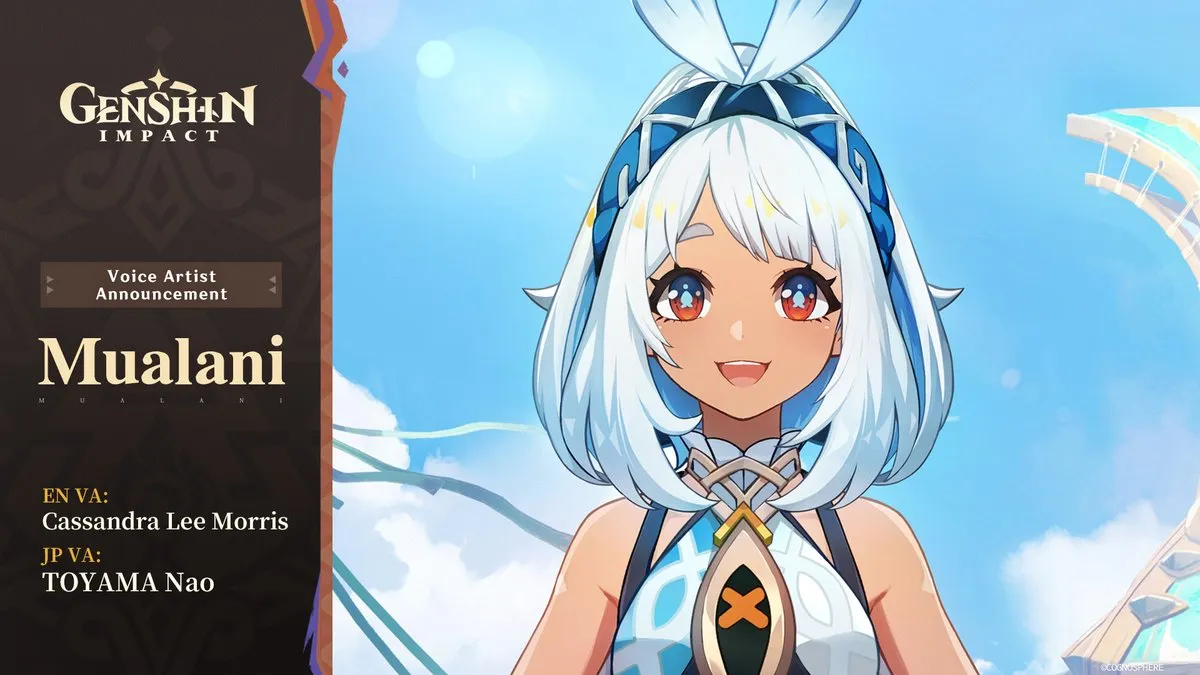 Mualani is the name of a Hawaiian High Chiefess and princess of Ko’olau. In Hawaiian, mua = first, and lani = heaven/sky.
Mualani is the name of a Hawaiian High Chiefess and princess of Ko’olau. In Hawaiian, mua = first, and lani = heaven/sky.
Kachina
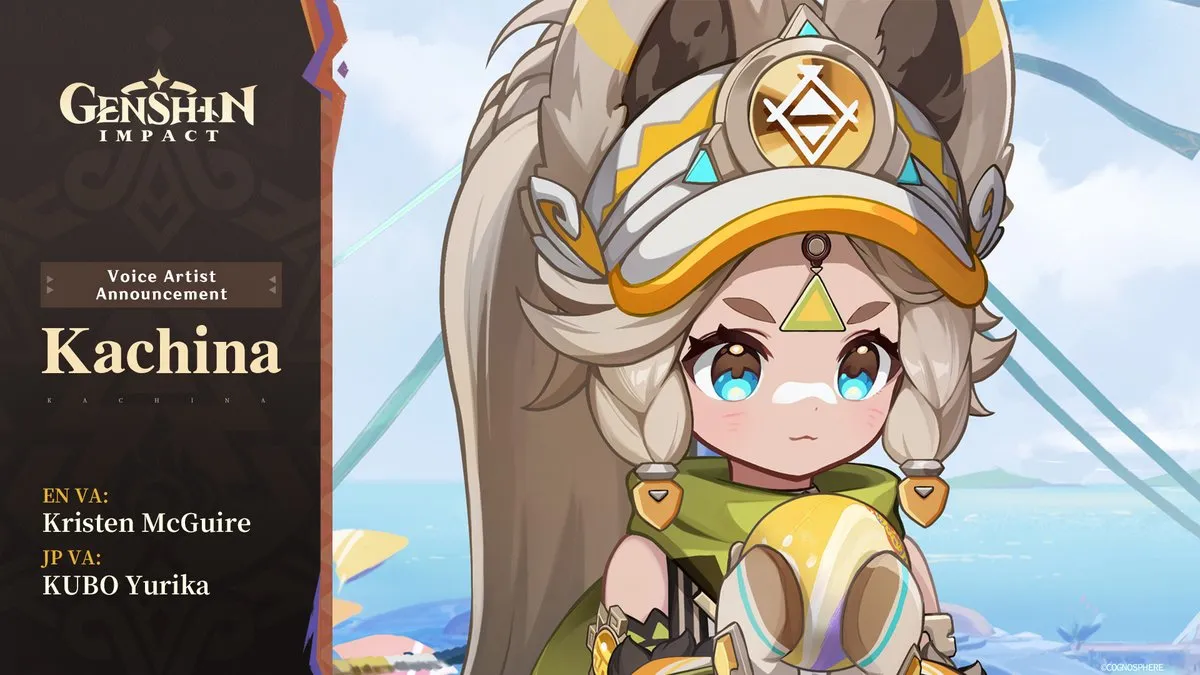 The kachina is a Pueblo spirit — usually a personification of something (an element, a location, a type of food, the sun, etc).
The kachina is a Pueblo spirit — usually a personification of something (an element, a location, a type of food, the sun, etc).
They came up from the underworld, helped people out for a bit, and then returned to the underworld — either because they were attacked and killed, or because people lost respect for them. When they left, people began impersonating them with masks, costumes, and dolls to recreate the happiness they brought.
Kinich
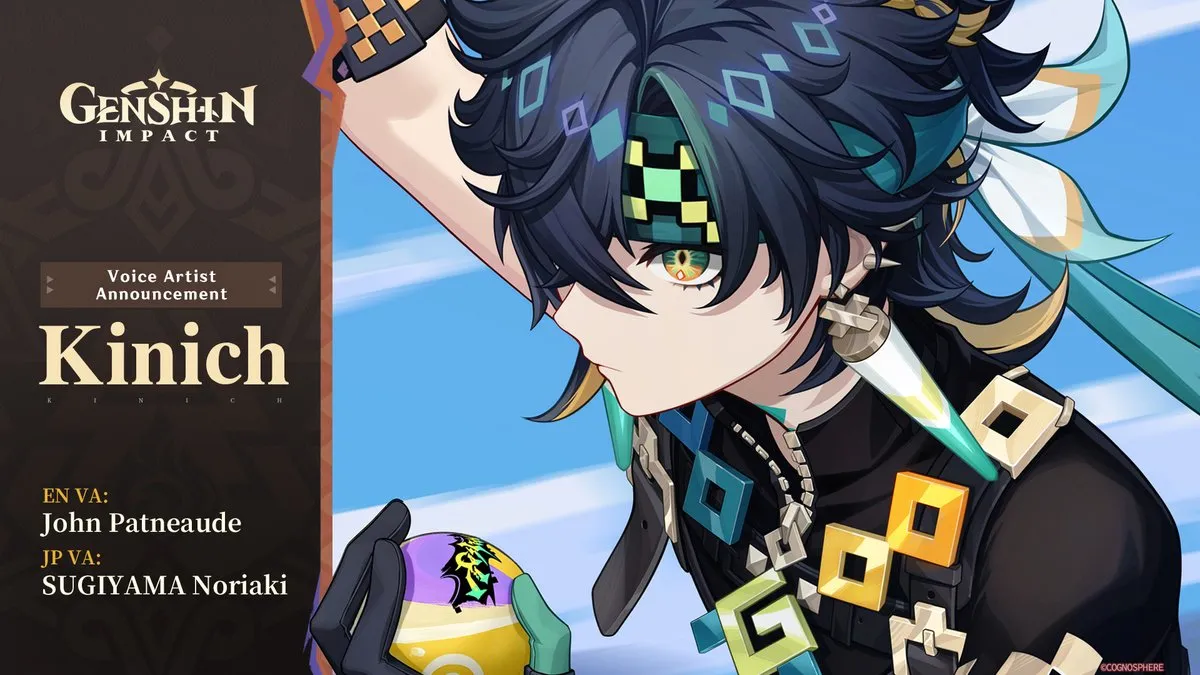 Kinich is the Yucatec and Lacandon name for the Maya sun god. A few interesting notes on that Wikipedia page:
Kinich is the Yucatec and Lacandon name for the Maya sun god. A few interesting notes on that Wikipedia page:
It may be noted that the Hero Twins, Hunahpu and Xbalanque, although stated to have changed into Sun and Moon, are never shown assimilated to God G. (God G is another name referring to Kinich here.)
The sun deity can be shown as a king (ajaw) seated high on a throne cushion (…)
Ajaw
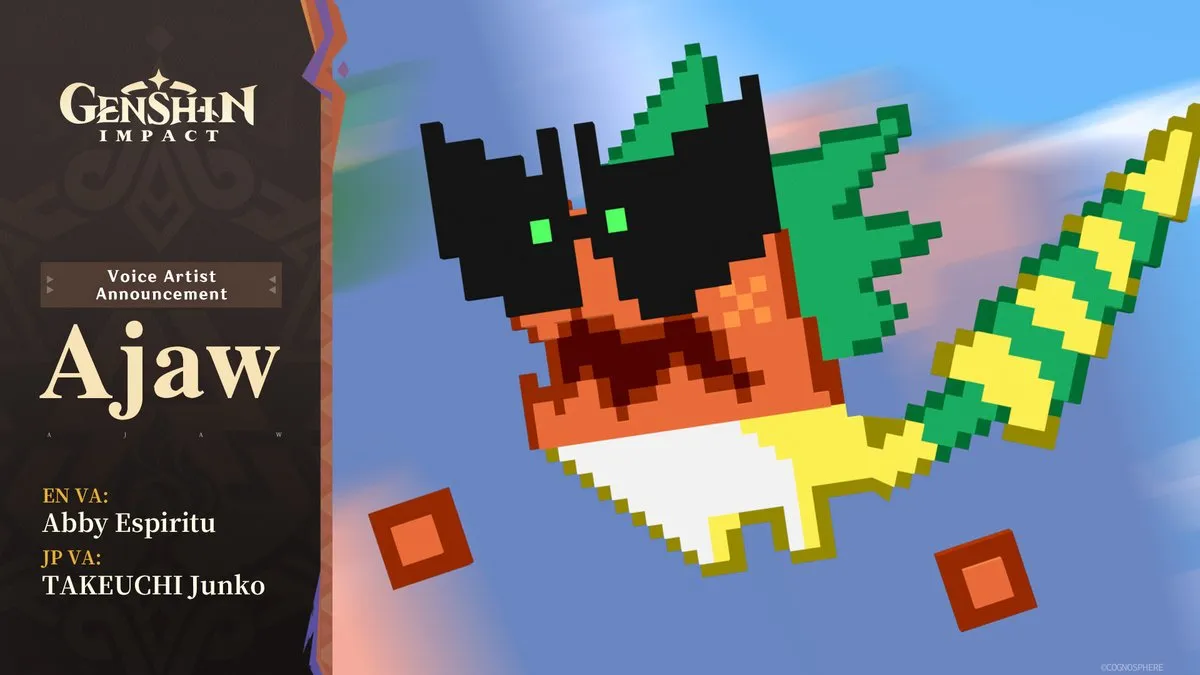 As mentioned above, “Ajaw” is a Mayan word — seems like it can be used to refer to any type of noble (including priests).
As mentioned above, “Ajaw” is a Mayan word — seems like it can be used to refer to any type of noble (including priests).
Citlali
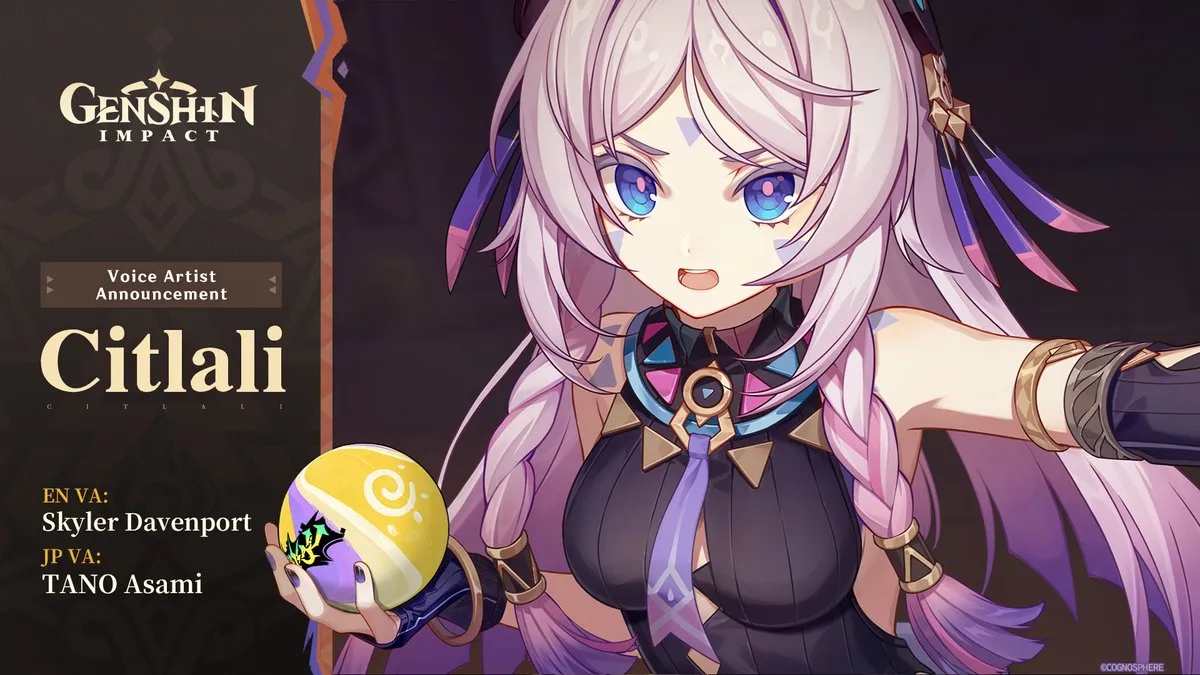 Citlālicue is the closest I can find here, I think — she’s an Aztec goddess who created the stars, the Earth, death, and darkness with her husband. Sometimes she and her husband are associated with the first pair of humans, Nata and Nena.
Citlālicue is the closest I can find here, I think — she’s an Aztec goddess who created the stars, the Earth, death, and darkness with her husband. Sometimes she and her husband are associated with the first pair of humans, Nata and Nena.
Xilonen
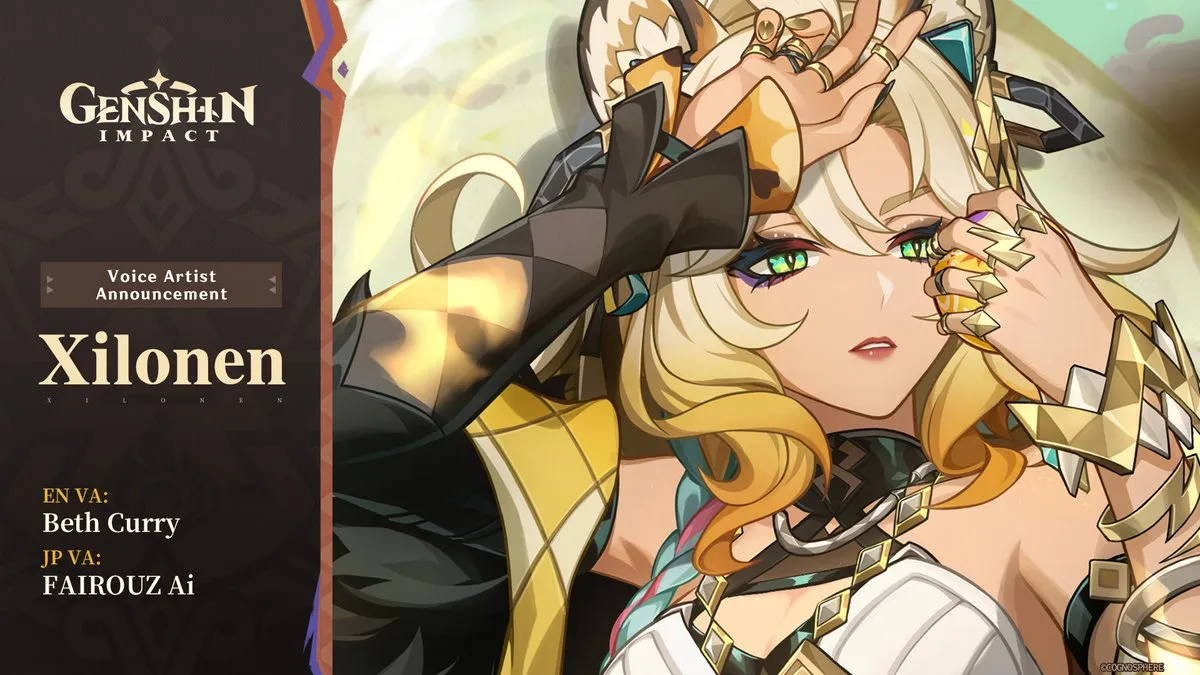 Xilonen is one of the names of Chicōmecōātl, an Aztec goddess of agriculture. Her name apparently means “Seven Serpent.”
Xilonen is one of the names of Chicōmecōātl, an Aztec goddess of agriculture. Her name apparently means “Seven Serpent.”
While she symbolizes the gathering of maize and agricultural prosperity, she also is thought to be harmful to the Aztecs, as she was thought to be of blame during years of poor harvest.
Chasca
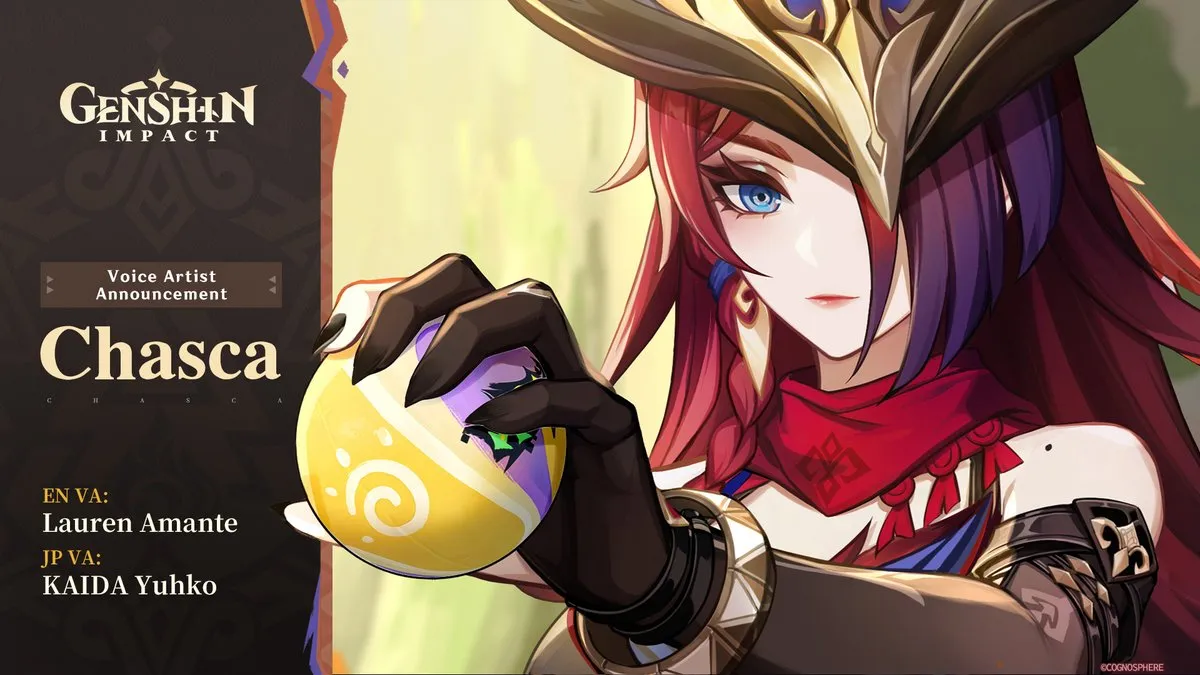 Ch’aska (who doesn’t have her own Wikipedia page, but is listed here) is the Incan goddess of dawn and beauty. She has a lot of similarities with Venus. Her name also means “morning star.”
Ch’aska (who doesn’t have her own Wikipedia page, but is listed here) is the Incan goddess of dawn and beauty. She has a lot of similarities with Venus. Her name also means “morning star.”
Mavuika
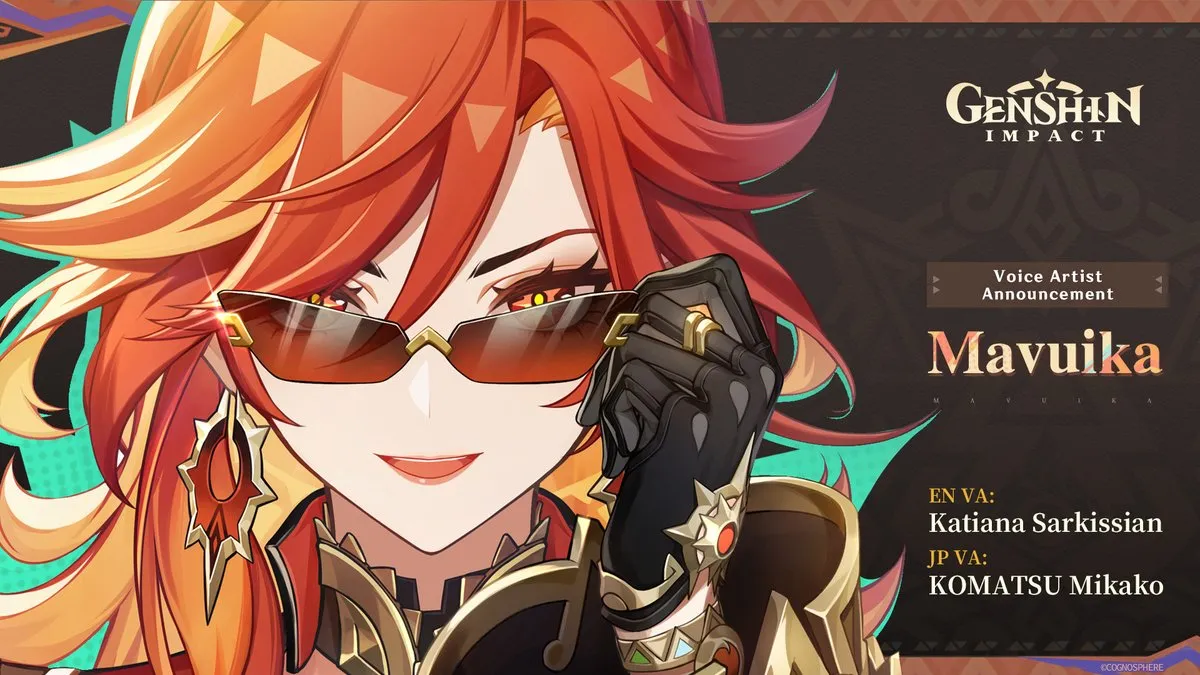 Mahuika is a pretty obvious source of inspiration for this one — the Maori fire deity. A few interesting notes about her:
Mahuika is a pretty obvious source of inspiration for this one — the Maori fire deity. A few interesting notes about her:
- Sometimes she’s depicted as the younger sister of the goddess of death
- Māui learned the secrets of making fire from her burning fingernails
- There’s a story about her getting the god of earthquakes and eruptions to destroy an island on her behalf because of a shapeshifting couple there who cursed her
Jillian
mavuika is clearly a himeko expy, as expected. but it’s notable that she hasn’t been referred to as himeko at all + she doesn’t share the same JP VA as the other himekos usually do. knowing that mahuika is the younger sister of another goddess, i wonder if himeko was the first pyro archon who has already died — and mavuika is her younger sister.
Iansan
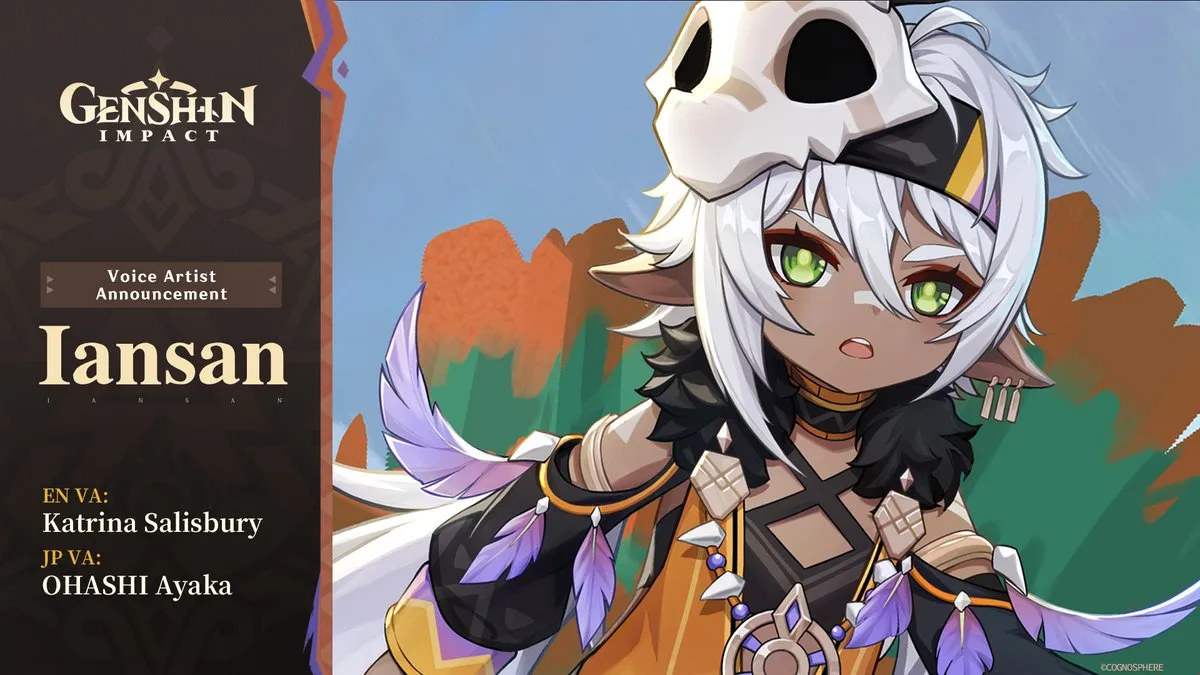 Also known as Ọya, Iansa is a Yoruba deity of rivers and storms. She is often depicted as a buffalo, and is the patron of the Niger river.
Also known as Ọya, Iansa is a Yoruba deity of rivers and storms. She is often depicted as a buffalo, and is the patron of the Niger river.
Ororon
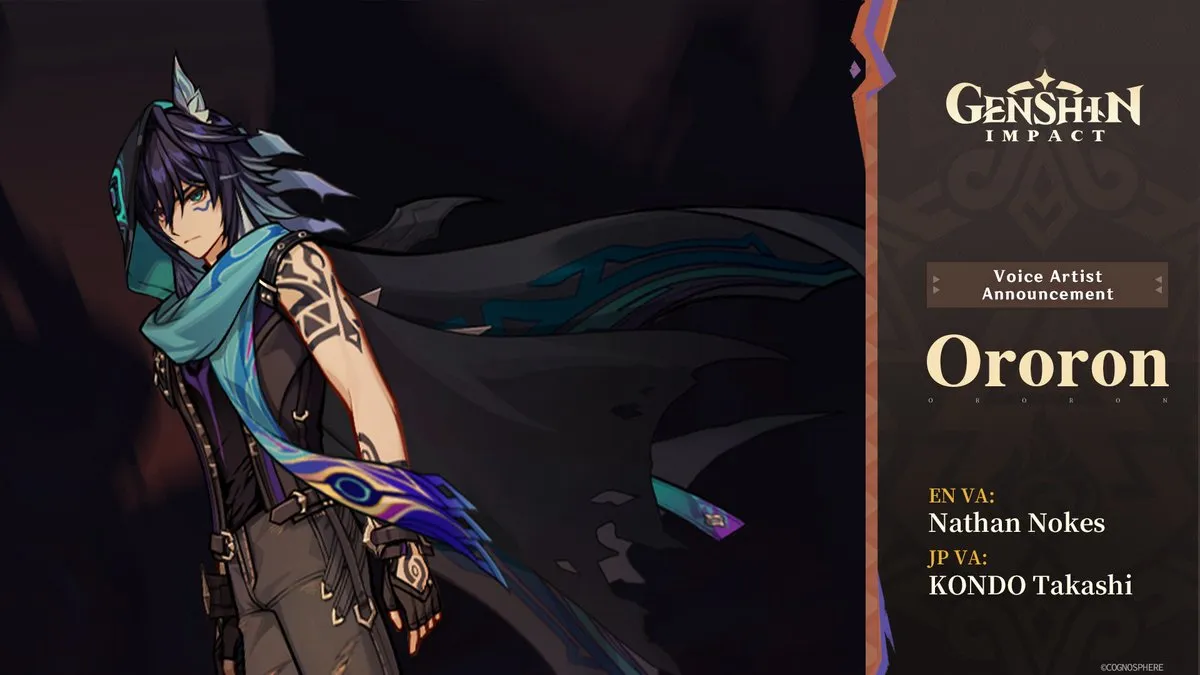 This one is hard — the name might be a reference to Oroonoko, which I have not read although it sounds crazy. The general synopsis is that Prince Oroonoko is tricked & captured by a European slave trader, and is then reunited with his former lover who he thought was dead but who had also just been sold into slavery. He eventually organizes a failed slave revolt, and then he and his lover decide that he has to kill her so she doesn’t face any worse repercussions for his actions later, or something. And then naturally he dies a gruesome, heroic death at the end.
This one is hard — the name might be a reference to Oroonoko, which I have not read although it sounds crazy. The general synopsis is that Prince Oroonoko is tricked & captured by a European slave trader, and is then reunited with his former lover who he thought was dead but who had also just been sold into slavery. He eventually organizes a failed slave revolt, and then he and his lover decide that he has to kill her so she doesn’t face any worse repercussions for his actions later, or something. And then naturally he dies a gruesome, heroic death at the end.
The other thing I found is a manga called The Demon Ororon, which is about the human daughter of the archangel Michael falling in love with Ororon, the King of Hell (who has abandoned his throne). It sounds very interesting, lol.
I guess the general theme here is you have some kind of noble who just wants to settle down with the girl he loves but cannot escape the violence & death that surrounds him as he tries to keep her safe. I’m also side-eyeing the very obvious quantum symbols on his scarf & hand.
Jillian
This is a very late addition, but it’s come to my attention that this name probably comes from Olorun, the supreme creator of the universe in Yoruba culture. That’s a pretty big one.